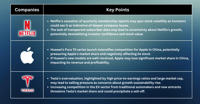Written by Mitali Roy, a passionate blogger whose career revolves around writing, which she fondly calls "the art of words." Writing about career and business is what she enjoys the most.
Most people aren’t really aware of the benefits or importance of investing early in life. As a result, they end up wasting both money and time while waiting for “the right opportunity” to invest.
For a lot of people, such a proper time never occurs during their lifespan. Consequently, they end up with a meagre resource for those golden years, when they exit the job market.
You could be among countless such people around the world who believe in waiting for the right time to invest. If so, I strongly suggest you start investing right now!
Because the earlier you invest, the richer you would be.
In this article, I’ll highlight the importance of investing early in life and what you stand to gain for doing so.
What does investing early really mean?
Generally, people believe that the millennial age or between 23 and 38 years is the best time to start investing. In fact, the best time to start investing is at your youngest possible age, or even in your pre-teens, when you learn to handle money.
The moment you land one of these legit jobs for teens and earn your first paycheck, you should invest a portion of it. Anyone who has even the smallest income can start saving. This means a teenager of 13 years and above who earns from doing jobs permitted by law should start investing immediately.
In fact, a lot of apps and schemes that allow people to start investing with just $5 are also available nowadays. Banks, credit unions and financial institutions have certain plans for smaller investors as well as younger investors.
There’s no lower age limit to start investing and there are plenty of benefits that will grow over time.
Importance of Investing Early in Life
1. Learn Financial Discipline
The most important feature of investing early is that you learn financial discipline. When you’re forced to sustain investment on a plan by paying a fixed amount from your income, it teaches you how to live with less money on hand.
This in turn teaches astute budgeting since you’ll need to identify your needs and wants from whatever cash remains after investing. And financial discipline is a vital skill that will pay rich dividends throughout your lifespan.
Moreover, you'll learn to be more discerning with your investment options early on. A part of smart investing is to run analysis on the products you invest in, studying the stock holdings of a long-short hedge fund, for example, to gauge just how profitable your investment will be. Developing this skill at a young age will help you become more well-versed in stocks in the future.
2. Recover Better from Losses
We’re all aware of volatility or uncertainty that exists in the stock and commodities markets. When you invest early, any such uncertainty and losses won’t have a significant impact on your life in general. Also, you have a much longer time to recover from these losses since the stock and commodities markets always peak after being in the doldrums for some time. In stark contrast, an older investor might not have the time to wait for their investments to recover.
3. Build a Diverse Portfolio

Never place all your eggs in one basket. The same adage holds true for investments. Any financial advisor would ask you to diversify your investment portfolio.
When you start investing early, diversifying your portfolio and adding more investments becomes a lot easier. You can invest and reinvest in some plans and, at the same time, explore new options to grow your wealth. Generally, an older person wouldn’t have the resources and time to create a well-diversified portfolio because of the lack of both time and money, forcing them to stay with just a few investments.
4. Buffers the Time Value of Money
As a rule, most investments pay compounding returns, if you choose well. The compounding value usually exceeds the time value of money. In simpler terms, it helps you to overcome the loss of the value of money over a period of time due to inflation and other reasons.
For example, $100 left in a bank would fetch $4.50 in interest in a year, compared to the same amount stashed away at home. If you invest that $100 in Forex or stocks, the returns will be exponential.
So even when the time value of money causes the $100 to be worth only $97, you’ll still gain a profit.
5. Enjoy Higher Risk-Taking Appetite
Younger investors can take more risks while investing in stocks, Exchange Traded Funds (ETFs), Mutual Funds and other instruments. Therefore, they can benefit the most from upswings and downturns in the stock and money markets by staying invested for a longer time and negating the risk factor.
Learn: How to invest even during a crisis like the COVID-19 Downturn.
Older investors would opt for safer investments and hence have a lower risk appetite. Consequently, they usually lose out on the richer dividends that riskier investments pay in the longer run.
In Conclusion
Investing early also helps you retire early if you wish. And you would also have enough money at hand to invest in start-ups or your own business. Furthermore, with a good portfolio of investments, you’ll develop the confidence to overcome the challenges posed by job changes or loss of employment.
Ready to grow your wealth in the world's largest financial market? No better place to start than right here with us! Begin trading with Fullerton Markets today by opening an account:
You might be interested in: 4 Smart Financial Goals to Set in 2020














